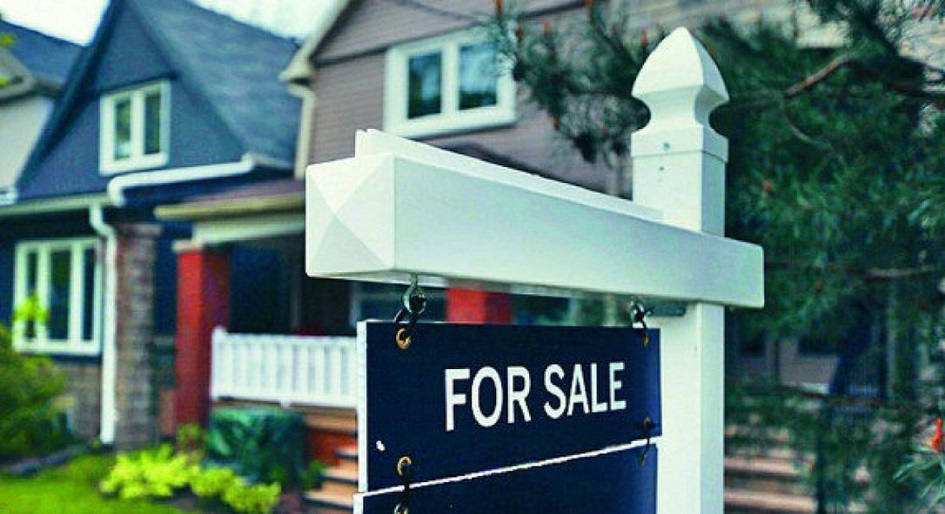Canada’s spring home-selling season wasn’t as hot as predicted. Buyers weren’t so eager to return to the market, even with the Bank of Canada’s rate cut to 4.75 per cent in June. Royal Lepage’s recent House Price Survey suggests interest rates need to drop further to revive buyer confidence.
The average home price currently stands at $824,300, a 1.9 per cent increase year-over-year. “Nationally, home prices rose while the number of properties bought and sold sagged; an unusual dynamic,” said Phil Soper, president and CEO, Royal LePage. “The silver lining: inventory levels in many regions have climbed materially. This is the closest we’ve been to a balanced market in several years.”
Looking at the major regions, Toronto and Vancouver reported slower-than-usual market activity as inventory builds. Demand continues to outpace supply in prairie provinces and Quebec. Home prices for the second quarter rose the highest in Quebec City at 10.4 per cent.
Royal LePage is forecasting that home prices will moderately increase throughout the second half of this year. In the fourth quarter, they could grow 9.0 per cent compared to Q4 2023.
According to housing type, the median price of a condominium increased 1.6 per cent year over year to $596,500, while the median price of a single-family detached home increased 2.2 per cent year over year to $860,600.
On a quarter-over-quarter basis, the median price of a condo increased 0.8 per cent. Single-family detached homes rose 1.8 per cent.
The average home price remains well above pre-pandemic levels. Q2 2024 saw an increase of 30.8 per cent over the same period in 2019.
With a few regional exceptions, prices have been fluctuating between modest declines and increases due to the impacts of higher interest rates. This has caused some markets to stall.
“
Canada’s housing market faces pent-up demand after two stifling years of high borrowing costs. While inflation control is crucial, persistently high rates are increasing the risk of a surge in demand when buyers inevitably return,” says Soper.
“New household formation and immigration keep fueling the need for housing, and a sudden release could create much market instability. This highlights the need for a more nuanced approach that balances inflation control with economic vitality,.”
Condos: a regional look
In the Greater Toronto Area, the average price of a condo compared to Q2 2023 is now $741,500—up 1.4 per cent. Yet in the city of Toronto, the median price of a condo decreased 2.4 per cent to $711,500.
However, it’s predicted that the GTA will see the greatest price appreciation of all major markets (10.0 per cent) in the fourth quarter this year.
Karen Yolevski, chief operating officer at Royal LePage Real Estate Services, said activity has slowed across all housing types right now, not only in the resale market, but in pre-construction as well.
“Consumers’ ability to purchase a new construction property – whether investors or end-users – has been blunted by the fast and furious rise in interest rates over the last two years, as the value of pre-construction units are not increasing at the same pace as mortgage costs in the time between purchasing and closing,” she said. “This drop in demand has in turn diminished builders’ confidence to launch new products in the near-term. The high cost of borrowing continues to be a major roadblock for builders in this city, and across the country.”
In Ottawa, the average price of a condo went up 1.0 per cent to $404,300. Demand has been slow, but likely to get a boost in the fall. Sellers there are able to hold out for the right offer amid cautious buyers, says broker John Rogan. There is an expected increase of 4.5 per cent by Q4.
The Greater Montreal Area saw condos increase 0.9 per cent to $465,800 year-over-year. Royal LePage predicts an increase of 8.5 per across all housing types by Q4.
The June rate cut didn’t attract as many buyers back to the Greater Vancouver market either. The average condo price there rose 1.0 per cent to $777,100. A 5.5 per cent increase is expected in the fourth quarter. In the city of Vancouver, condos rose 3.7 per cent to $852,100.
“We continue to see consumers sitting on the fence, taking their time with their real estate purchase decisions,” said Randy Ryalls, general manager, Royal LePage Sterling Realty. “Inventory has continued to grow, giving prospective buyers some much-needed choice and keeping market conditions balanced. As is normally the case for this time of year, buyers and sellers have hit pause to enjoy the summer months.”
In Calgary, condos and townhomes in particular are fueling the market with new supply. The average condo price went up 8.6 per cent to $273,600 in Q2. “Sales activity remains strong in Calgary, with many homebuyers competing for properties in multiple-offer scenarios,” said Corinne Lyall, broker and owner, Royal LePage Benchmark. “So far, the long-awaited rate drop has only really benefited variable-rate mortgage holders, who are now seeing some relief on their monthly mortgage payments.”
The aggregate price of a condo in Edmonton increased 4.2 per cent to $201,600 in Q2. The city, alongside Quebec, recently topped a list of cities residents in Toronto and Vancouver would be willing to relocate to. The average home price there is projected to rise 6.5 per cent in Q4.
More regional price details can be found here.







